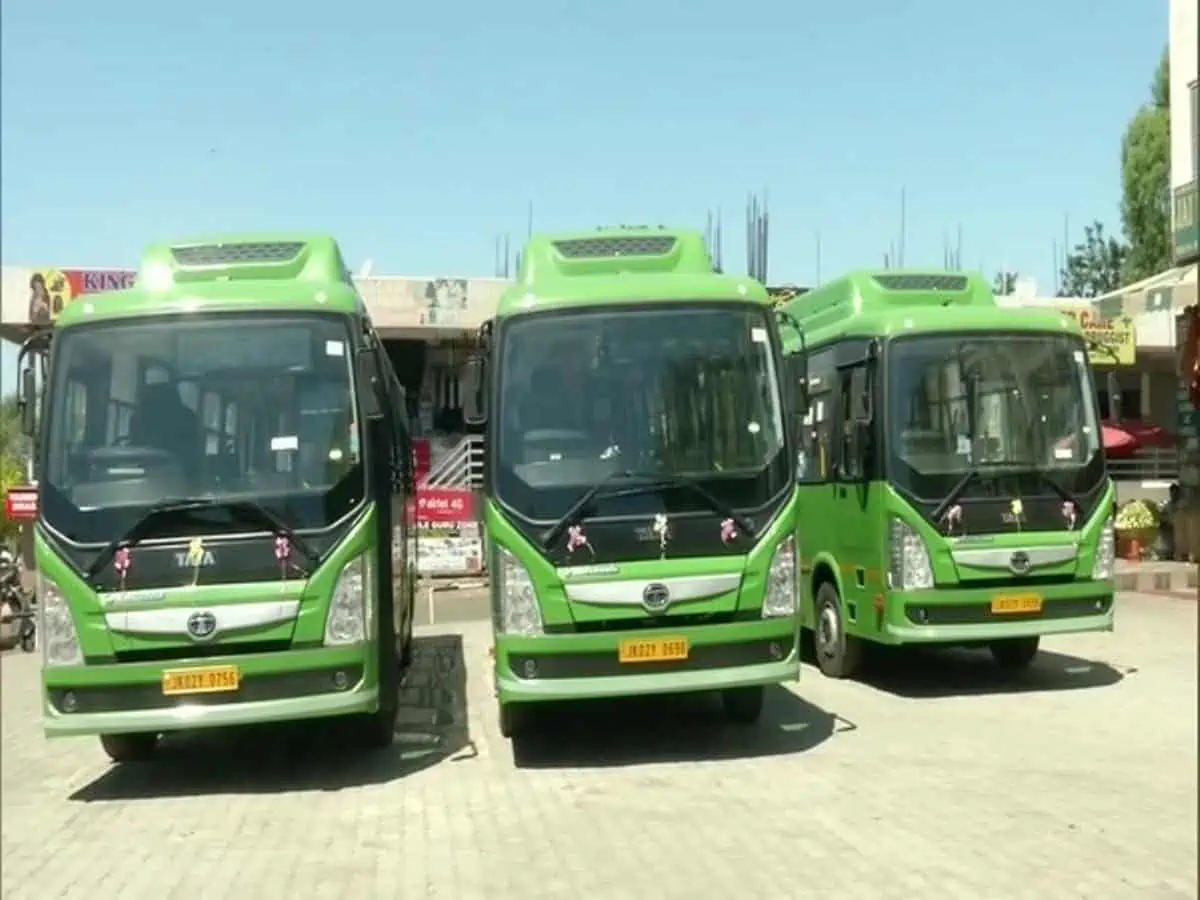Pune’s pursuit of sustainable urban mobility took a major leap forward today with the inauguration of two new electric bus depots at Charholi and Man. With this expansion, the Pune Mahanagar Parivahan Mahamandal Ltd (PMPML) is poised to significantly scale up its green public transport infrastructure, setting the stage for the induction of 1,500 new buses into the city’s fleet in the coming months.
At the inauguration ceremony, which commenced with a tribute to recent victims of violence in Pahalgam, state officials emphasised the city’s commitment to building an environmentally sustainable transport system. An official announcement confirmed that of the 1,500 new buses, 500 will be electric vehicles procured under the Gross Cost Contract (GCC) model, aligning with Maharashtra’s broader vision of a ‘Green Maharashtra’.The newly inaug urated depots will support this vision by housing a total of 90 electric buses — 30 at the Man depot and 60 at Charholi. The move signals a strategic shift toward electrification and energy efficiency in public transport operations, as Pune positions itself among India’s leading cities adopting zero-emission mobility solutions.
Funding for this ambitious expansion has been sourced through a collaborative model. The Pune Metropolitan Region Development Authority (PMRDA) has allocated ₹230 crore towards the purchase of 500 CNG buses, while the Pune Municipal Corporation (PMC) and the Pimpri-Chinchwad Municipal Corporation (PCMC) have each committed ₹150 crore for the acquisition of another 500 CNG buses. The remaining 500 electric buses will be introduced under a separate procurement mechanism, ensuring a diverse yet sustainable fleet expansion. Officials noted that these investments are a critical part of larger infrastructure upgrades, including the construction of the city’s outer ring road by the Maharashtra State Road Development Corporation (MSRDC) and the impending launch of the inner ring road by PMRDA. The efforts to modernise Pune’s metro network — particularly the Swargate–Katraj and Khadakwasla–Hadapsar–Kharadi routes — were also highlighted as complementary projects aimed at fostering a multimodal, low-carbon transport ecosystem.
According to PMPML authorities, the organisation currently operates a fleet of 1,967 buses, covering an impressive 3.1 lakh kilometres daily and serving approximately 12.5 lakh passengers. The addition of the two new depots brings the total number of PMPML’s operational depots to 17, offering critical logistical support to maintain and manage the expanded fleet efficiently. PMPML officials also underscored the digital transformation efforts underway, revealing that the mobile application launched for passengers has witnessed substantial adoption, streamlining travel information and ticketing services for users. These digital initiatives have earned PMPML two national awards, reinforcing its standing as a progressive and citizen-centric public transport provider.
Looking ahead, PMPML is actively planning to introduce AI-driven, conductor-less smart buses. These innovative services are designed to prioritise commuter safety and aim to deliver an accident-free public transport experience, further elevating Pune’s reputation as a model for sustainable urban mobility. The announcement of such a large-scale fleet augmentation, particularly with a strong electric and CNG component, reflects a determined commitment to reducing urban air pollution and promoting carbon neutrality. Pune’s proactive investments in low-emission vehicles and supporting infrastructure mirror global best practices and offer a tangible blueprint for other Indian cities aspiring to align with climate-resilient urban development goals.
Officials maintained that these collective initiatives were not just about enhancing public convenience but also about fostering greater social equity. Affordable and accessible public transport has long been recognised as a critical pillar for inclusive city growth, allowing all sections of society — irrespective of income or gender — to participate fully in the city’s economic and social life. While challenges related to fleet maintenance, depot capacity utilisation, and integration of smart technology remain, the current momentum signals a transformative era for Pune’s urban landscape. Citizens, urban planners, and sustainability advocates alike will be closely watching the rollout of this next phase, as Pune strengthens its position as one of India’s frontrunners in building a cleaner, greener, and more equitable urban future.
As the engines of the new electric and CNG buses prepare to roll out in the coming months, Pune’s journey toward an environmentally sustainable and socially inclusive transport ecosystem offers both inspiration and a roadmap for cities across the nation.
Also Read :https://urbanacres.in/green-public-space-coming-to-greater-noida/
Pune Expands Green Public Transport Network


